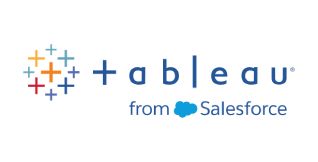In today's sophisticated digital era, network security has become one of the main priorities for companies and individuals. However, no matter how strong the security system you have, the reality is that no system is truly safe from hacker threats. Hackers are always finding new ways to breaking into the network, even the most protected systems. So, why do you need to be vigilant and what can you do to strengthen your defenses? Let's discuss it further!
1. Unexpected Zero-Day Threat
Attack A zero-day is an attack that exploits a security hole that software developers don't yet know about. Hackers exploit these vulnerabilities to infiltrate networks without being detected. Because it is new and does not yet have a security solution, zero-day attacks are very difficult dangerous and can cause major damage in a short time. Even systems that are constantly being updated can be targets of these attacks. Therefore, it is important to always monitor and implement risk mitigation strategies.
2. Phishing techniques are increasingly sophisticated
Phishing is nothing new, but the techniques are becoming more sophisticated by the day. Hackers are now able to create emails, websites and messages that look very similar to official sources. Even well-trained employees can fall into the trap and unknowingly give away important information such as login credentials or access to the company network. Because phishing attacks rely on social engineering, an antivirus or firewall alone is not enough. Education and training is needed cyber security ongoing efforts to help recognize and avoid these threats.
3. Deadly Ransomware Attacks
Ransomware is a type of cyber attack that can lock or encrypt your data, then demand a ransom to restore access to that data. In recent years, ransomware attacks have become increasingly frequent and complex, targeting companies of all sizes. Even if you have a backup system and security protocols, this attack can still penetrate your defenses if you miss even one security gap. Preventing ransomware attacks requires a multi-layered approach, including data encryption, access management, and tight network security.
4. Attackers Take Advantage of Vulnerable Wi-Fi Networks
Wi-Fi Network an unsecured one could be a hacker's entry point into your network. If your network uses old security protocols such as WEP or WPA which are easy to hack, hackers can easily gain access to the data on the network. Therefore, always make sure your Wi-Fi network uses the latest security protocols, such as WPA3, and is protected with a strong password. Don't forget to separate the guest Wi-Fi network from the internal network to prevent unwanted access.
5. Data Leakage through Internal Weaknesses
Not infrequently, data leak occurs due to negligence or errors from within the company, whether because employees are careless or accidentally upload sensitive information to an insecure platform. In addition, devices used by employees, such as laptops and smartphones, can become weak points if they are not equipped with adequate protection. It is important to implement strict internal security policies, including access authorization and data encryption on devices.
Understanding that no system is completely secure is the first step in improving security network You. Hackers are always looking for loopholes, and they can break into your system at any time if you are careless. Therefore, cyber security is not something that can be ignored or taken for granted. An effective security strategy requires a multi-layered approach, including regular system updates, network monitoring, employee training, and the use of the latest security technologies.
Thrive is here to help you with comprehensive and proactive cybersecurity solutions. We provide a variety security services designed to counter hacker threats and better protect your network. Contact us now and improve your cyber defense with Thrive!




























 Industrial Robotics Integration
Industrial Robotics Integration
 IT Outsourcing Service
IT Outsourcing Service
 Secure Internet SD-WAN Connection
Secure Internet SD-WAN Connection
 Digital Marketing Service
Digital Marketing Service









